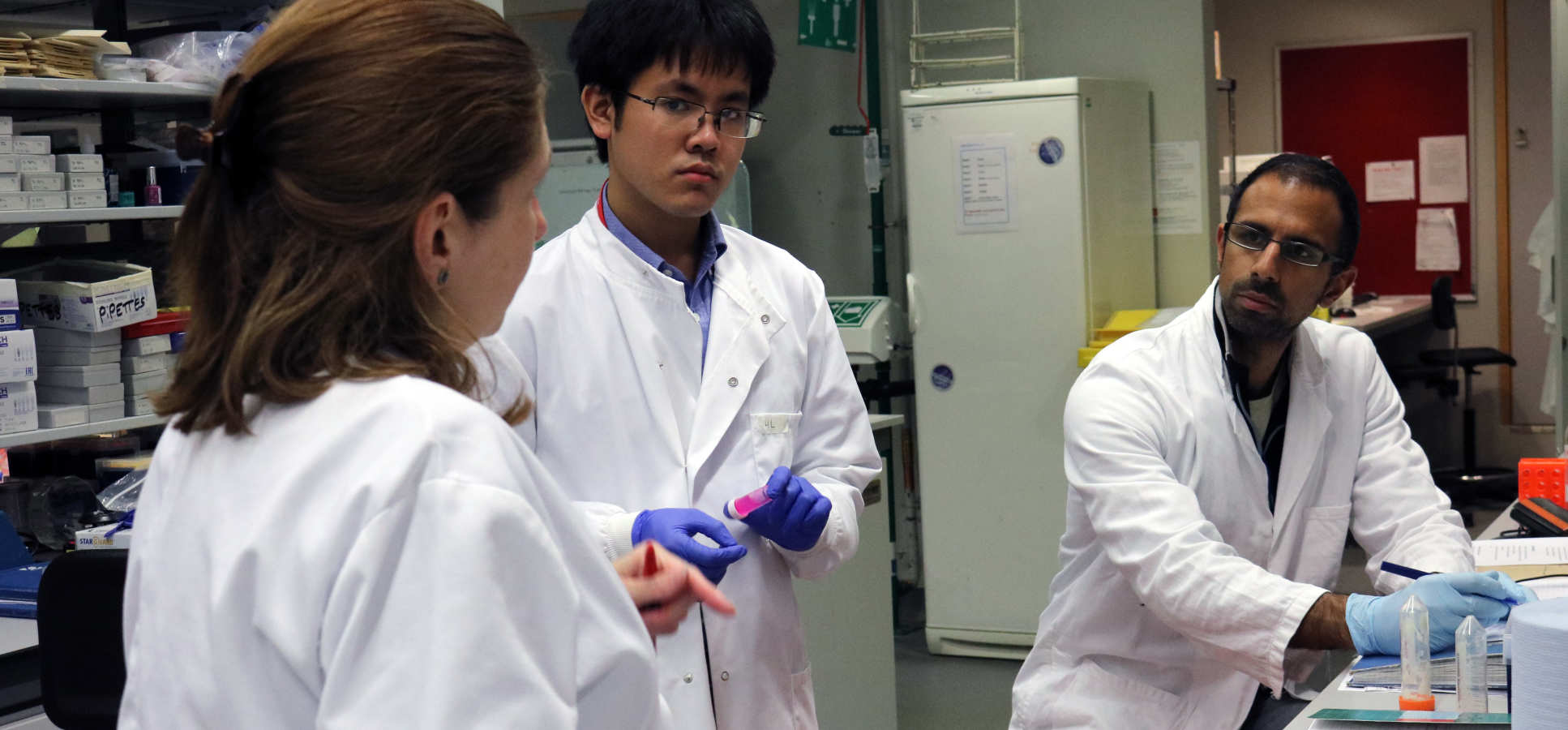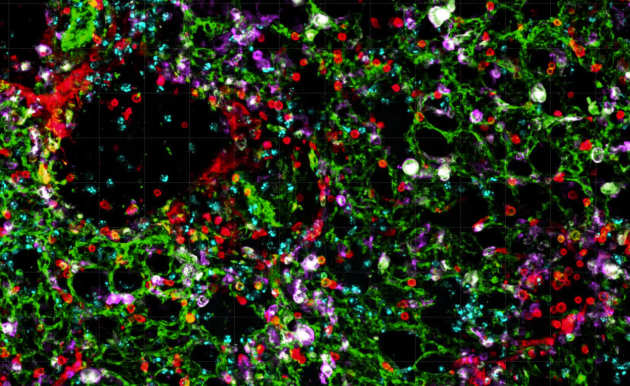
Training
Combining our individual skills enables us to offer a rich cross-disciplinary environment for training clinical and basic scientists. Importantly, together we offer expertise in a wide range of techniques providing a translational approach that stretches from bench to bed-side.
- We offer training for both clinical and basic PhD students, as well as MRes, MD(Res) and intercalated MBBS/BSc projects through the main National Heart and Lung Institute schemes.
- Fellowships in Respiratory and Critical Care are available for international trainees in a programme linked to the MTI scheme of the Royal College of Physicians.
- The Imperial Immunity, Inflammation, Infection and Informatics (4i) Clinician Scientist Programme focuses on the academic strengths of the College that are relevant to major health problems. The programme is designed to attract and cultivate the most promising clinical academic researchers.
- Training in Good Clinical Practice and Tissue governance are provided to members of IRD via the Brompton Hospital where necessary.
We welcome individuals to contact us directly to discuss the possibility of applying for funding for PhD or post-doctoral positions with our group. We are also keen to hear from any potential academic or industrial collaborators. Please contact Naho Ollason (n.ollason@imperial.ac.uk)
Key techniques within our section
 Our key strengths are in vivo models, lung immunology, stem cell biology, lung physiology, ex vivo lung perfusion models and cell culture systems using primary lung cells grown in vitro. Murine embryonic lung analysis and explant culture, organotypic culture, murine and human primary cell culture, real-time cell analysis, murine and human in vitro and in vivo challenge models, murine and human lung slice cultures, human EVLP models, real-time imaging of lung cells, explants and cultures, intra-vital lung imaging, multi-parameter flow cytometry.
Our key strengths are in vivo models, lung immunology, stem cell biology, lung physiology, ex vivo lung perfusion models and cell culture systems using primary lung cells grown in vitro. Murine embryonic lung analysis and explant culture, organotypic culture, murine and human primary cell culture, real-time cell analysis, murine and human in vitro and in vivo challenge models, murine and human lung slice cultures, human EVLP models, real-time imaging of lung cells, explants and cultures, intra-vital lung imaging, multi-parameter flow cytometry.
Image: Represents a live lung slice from an allergen (Alternaria) treated mouse after 3 weeks of dosing. The image focuses around a large airway where you see accumulation of red CD90.2 cells (mainly ILCs, mature T cells) and in cyan eosinophils. Also in green is Isolectin stain which stains airway macrophages (the large round cells) and in magenta is stained for CD11c which ate macrophages and dendritic cells.
Facilities
Fellowships
The IRD section includes a number of fellows who make an important and valuable contribution to the section. The department provides space, infrastructure and mentoring for fellows whilst they establish their independent careers. Currently members of IRD hold Wellcome Trust, Sir Henry Dale, Marie Curie and Imperial College JRF fellowships. We are always keen to hear from individuals who are thinking of applying for fellowships, please contact Naho Ollason (n.ollason@imperial.ac.uk).
Current fellows
Current fellows
Dr Katia De Filippo
/prod01/channel_3/media/migration/faculty-of-medicine/De-Filippo_-Katia-_3_--t_1508837746567_x1--tojpeg_1570787663336_x4.jpg)
Dr Katia De Filippo
Dr Robert Snelgrove
/prod01/channel_3/media/images/people-list/Roert-Snelgrove.jpg)
Dr Robert Snelgrove
Dr Maeve Kelleher
/prod01/channel_3/media/migration/faculty-of-medicine/maeve-kelleher-pic--t_1553596583911_x1--tojpeg_1570788012122_x4.jpg)
Dr Maeve Kelleher
Contact
Head of Section
Professor Sejal Saglani
s.saglani@imperial.ac.uk
If you are interested in working with a particular group, please e-mail anyone of the Principal Investigators through the e-mail links on individual webpages.
--tojpeg_1473680102479_x4.jpg)